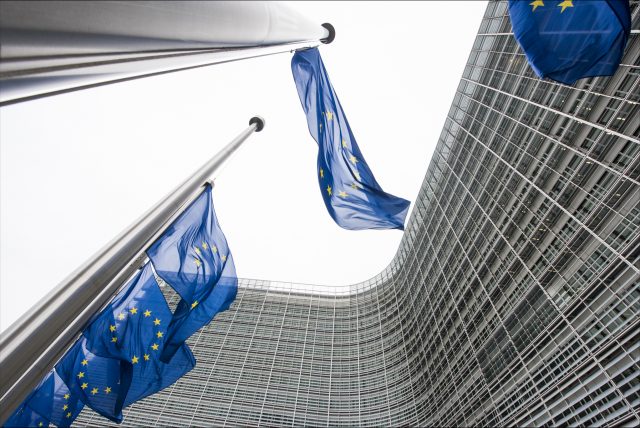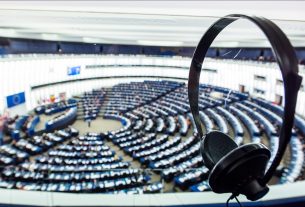BRUSSELS — European Commissioner for Neighbourhood and Enlargement, Olivér Várhelyi, presented the Annual Enlargement Package for 2022 during a session in European Parliament’s Committee on Foreign Affairs (AFET) held on Wednesday.
In his opening remarks, Várhelyi gave an overview of the progress made by the Western Balkans six and Turkey on their path of EU integration.
Várhelyi reiterated that the Commission has once again recommended that Bosnia and Herzegovina be granted the status of a candidate country, but Várhelyi stated eight conditions that need to be fulfilled before that occurs. Half of these conditions refer to judiciary reform, while the rest of them tackle the issues such as freedom of the media, migration and prohibition of torture.
“Granting candidate statues is an offer from Europe to Bosnia and Herzegovina and to the people of Bosnia and Herzegovina. We are doing this for the people of Bosnia and Herzegovina. But it also comes with high expectations. It is for the elite to turn this into reality. Following general elections on 2nd October we expect the legislatures and governments (at State, entity and cantonal levels) to be swiftly set up in order to focus on EU reforms,” Várhelyi explained.
The European Council is expected to decide on the status of Bosnia and Herzegovina in December.
Speaking about North Macedonia, Várhelyi reiterated that the country started the accession negotiation process and participated in the first political IGC meeting this year. He described the negotiation process as “long overdue and a breakthrough for the country.”
He also praised the determination and progress North Macedonia has shown in implementing the reforms needed for EU accession, as well as its alignment with the EU foreign policy.
“The country needs to keep up the speed and make use of the screening process to explore its full potential to accelerate the implementation of EU reforms. The fight against corruption needs to continue and further efforts are needed in the area of Public Administration Reform”, said Várhelyi.
The Rapporteur of the European Parliament for North Macedonia, Ilhan Kyuchyuk, called upon the government and the opposition to work together:
“I would encourage both the opposition and government party to sit together and find a compromise on geopolitical orientation of the country. Although it’s clear that North Macedonia is a part of NATO, I want to see the opposition and the government working together when it comes to priorities related on the EU”, said Kyuchyuk.
When it comes to Albania, Várhelyi stated that “the comprehensive justice reform and the vetting process, which has continued to advance at a steady pace are examples of good progress.”
Albania’s 100% alignment with the EU foreign policy has been endorsed, as well as its engagement at the UN Security Council regarding the war in Ukraine. Judiciary, freedom of expression, the fight against corruption, property rights, minority issues and media freedom were identified as key areas for improvement.
Isabel Santons, Rapporteur of the European Parliament for Albania, said Albania is a “good student” and has been for a long time. However, she concluded that she would like to hear that the end of the accession process will occur in accordance with merit-based approach and would not be “conditioned by internal debates.”
When it comes to Montenegro, there are several critical points, such as the fight against corruption and organized crime, as well as fulfilling the interim benchmarks regarding the rule of law which are stated in chapters 23 and 24. Appointment of judges on vacant positions in the Constitutional courts and in the other courts of law needs to be done in order to continue the necessary judicial reforms.
Tonino Picula, special rapporteur of the European Parliament for Montenegro, stressed the importance of depoliticization of the judiciary system and “breaking the deadlock in negotiations with the EU” caused by the current political situation in the Montenegrin parliament.
In AFET, EU Enlargement Commissioner assessed that Serbia continued to implement necessary reforms, but it needs to put in stronger efforts when it comes to judiciary reforms, freedom of expression and freedom of the media.
Progress in the fight against corruption has been overshadowed by Serbia’s lack of alignment with Common Security and Defense Policy, which was one of the most discussed issues in AFET debate. The refusal to impose sanctions on Russia lowered Serbia’s alignment rate to an all time low of 45 percent.
“We need to count on Serbia as a sincere European partner and ally, standing with us for our common values, security and prosperity. In the current geopolitical context, it is also clear that Serbia needs to step up its effort in aligning with EU positions on foreign policy, including declarations and sanctions against Russia”, Várhelyi assessed in AFET.
Speaking about Kosovo, he stated that EU recognized the commitment of the Kosovo Government in areas of democratization, rule of law, and the fight against corruption. Várhelyi confirmed the Commission’s recommendation to implement visa liberalization for Kosovo since it has fulfilled all the benchmarks in 2018. The proposal is still pending in the Council.
Rapporteur of the European Parliament for Kosovo, Viola von Cramon, urged the EU to finally make a step forward regarding visa liberalization and has reminded that this is the 4th time this issue is being raised.
The post Judiciary, media and corruption remain critical areas in EC reports for Western Balkans appeared first on European Western Balkans.




